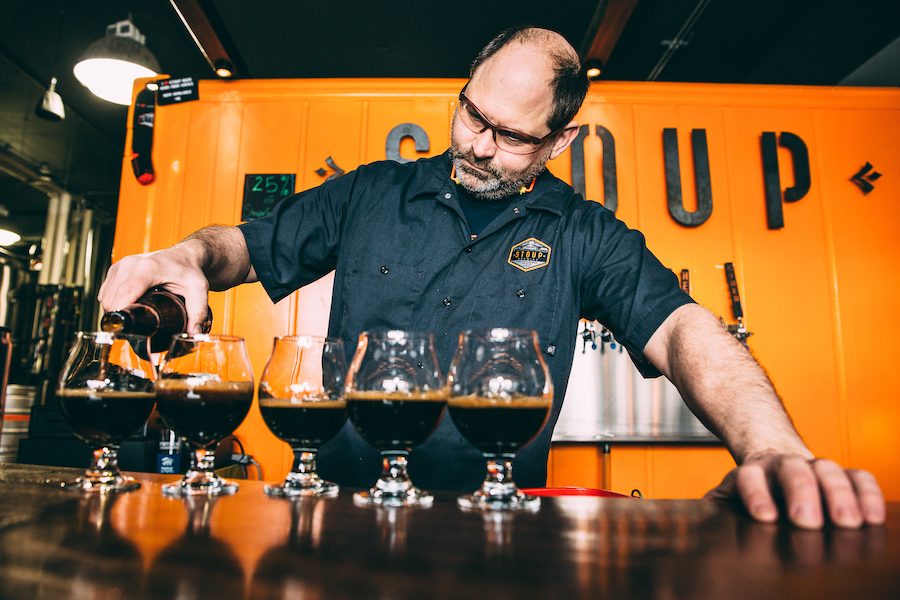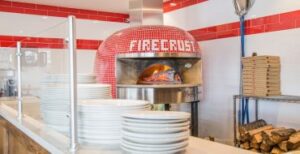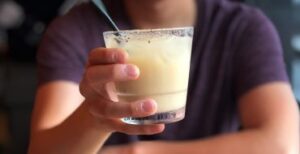Brad Benson, a trained chemist and the co-founder at Stoup Brewing, explains how he uses science – and passion – to make better beer.
Before Brad Benson decided to open up a brewery, he worked as an environmental consultant. His life seemed to be on track: his job was stable and paid well, and he was happily married.
But Benson wasn’t particularly satisfied with what he was doing.
“One day, my wife Lara and I just looked around, and we noticed that we weren’t happy with the way our careers were going,” Benson remembers. “That’s when we said to ourselves, let’s do it – let’s open up a brewery!”
The couple got right to it. It was 2013, and at the time, the idea didn’t seem too crazy: both of them loved everything about beer – its taste, its history, how it brings people together –, and had already been home brewing for several years.
Plus, they had a secret ingredient that they believed would set them apart from other potential brewers: Benson’s chemistry degree.

Enter Stoup Brewing
Since Oct. 2013, Benson and two other self-proclaimed nerds – his wife Lara Zahaba and business partner/biologist, Robyn Schumacher – run Stoup Brewing, an award-winning brewery located in Ballard, Seattle’s de-facto craft beer neighborhood.
Today the trio makes everything from robust porters to citric IPAs, and makes it a point to constantly perfect its brewing process – and it’s beers – by using science.
“When you really break down how a good beer is made it’s really all about the process,” says Benson, his voice brimming with excitement. “There’s fluid dynamics and thermal dynamics, and chemical reactions, and biology.”
Take yeast, for example (which along with malted barley, hops, and water is one of the four main ingredients of any beer). As Benson explains, yeast is used to process sugars and create alcohol, but as a living organism it is also extremely sensitive and needs special care. Because of this, before adding it to any of the brews, Benson puts it under a microscope to check for cell count and viability. This ensures that the yeast culture is healthy, and will perform exactly as it should.
“It’s this complex biological process where you’re really wrangling trillions of these little microscopic organisms to do your job for you and eat the sugars in the liquid and turn it into delicious beer,” he says. “It’s fascinating, and if you want to make great beer, you have to pay attention to all these tiny details.”

More than just science
As self-professed nerds, Benson and his partners go beyond science in order to make great beers: they also focus on history and look for traditional recipes and ingredients in order to create new variations of classic beer varieties.
“We really are students of the history of beer and the process and really enjoy looking at why different beers were developed in different parts of the world,” Benson says.
By bringing together their passion for beer and combining it harmoniously with their scientific and historical knowledge, beautiful, and ultimately delicious products emerge.
“I think we do a really good job at creating that balance in our beers,” says Benson. “Our goal is that when you have a sip of one of our beers and you bring it down, your brain goes: ‘Hey, wait a minute, I want to do that again!’”
This article is sponsored by Stoup Brewing.









